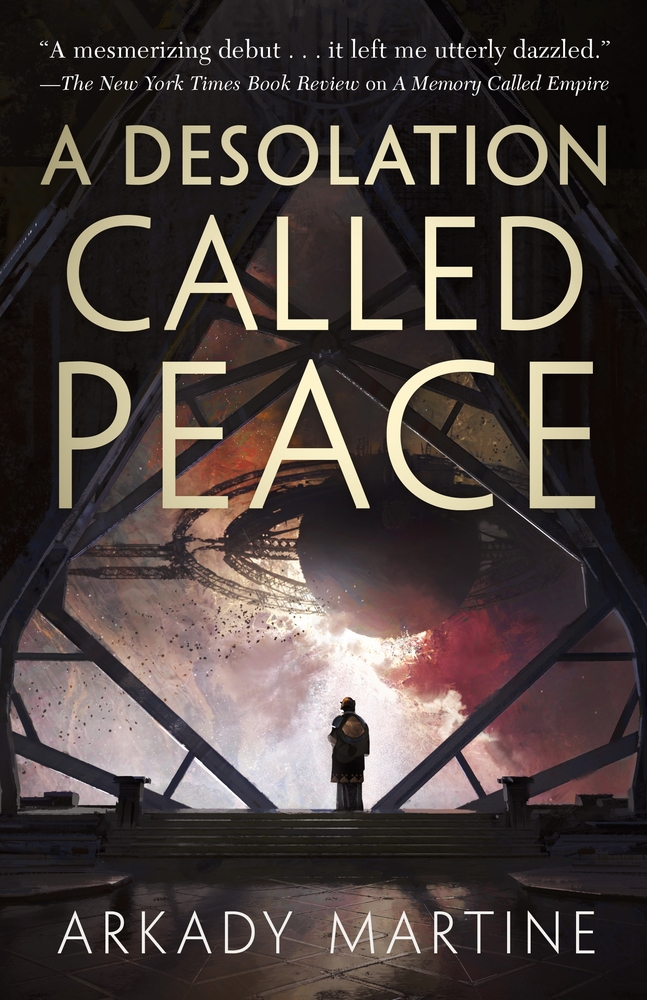opens in a new window opens in a new window
opens in a new window opens in a new window
opens in a new window opens in a new window
opens in a new window opens in a new window
opens in a new window
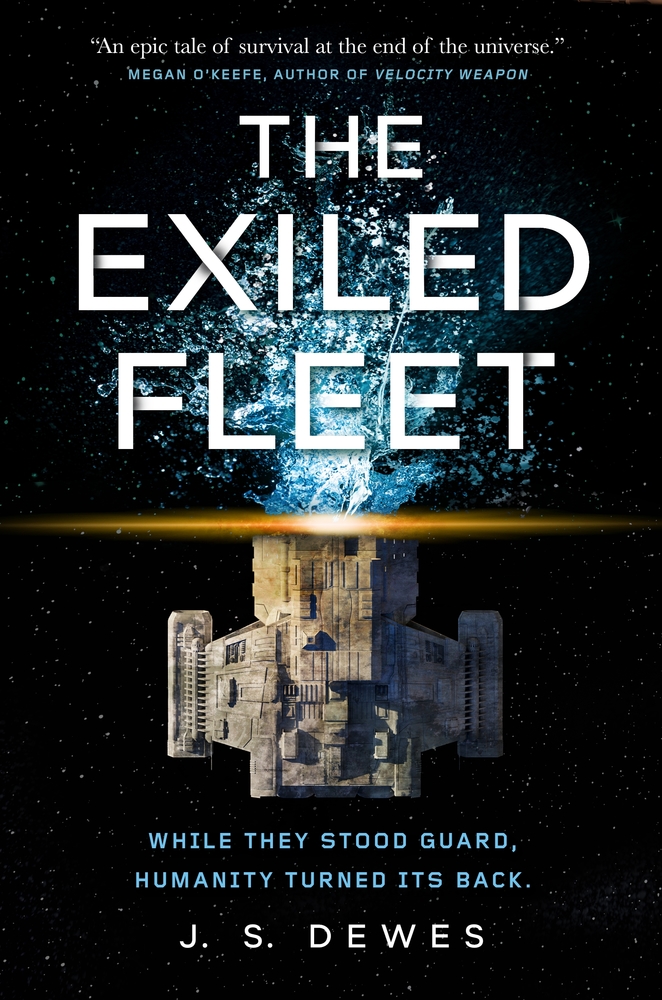 J. S. Dewes continues her fast paced, science fiction action adventure with The Exiled Fleet, where The Expanse meets The Black Company—the survivors of The Last Watch refuse to die.
J. S. Dewes continues her fast paced, science fiction action adventure with The Exiled Fleet, where The Expanse meets The Black Company—the survivors of The Last Watch refuse to die.
The Sentinels narrowly escaped the collapsing edge of the Divide.
They have mustered a few other surviving Sentinels, but with no engines they have no way to leave the edge of the universe before they starve.
Adequin Rake has gathered a team to find the materials they’ll need to get everyone out.
To do that they’re going to need new allies and evade a ruthless enemy. Some of them will not survive.
Please enjoy this free preview of opens in a new windowThe Exiled Fleet, on sale 08/17/2021.
Chapter One
“Motherfucker. You better work.”
Cavalon slammed the access panel shut. Sweat stung his eyes and he wiped away the moisture slicking his overgrown hair to his forehead. Days since he’d started this phase of the project: twenty-three. Times he’d recalculated, reconfigured, or rebuilt this single fucking subsystem: fourteen. Patience: zero.
This had to be it. It had to work this time, or he’d give up and activate it without any stupid “core stabilization,” then stand back and watch the damn thing supernova. Who tried to build a star aboard a fucking spaceship anyway? Bloody void.
He tapped the black nexus band on his wrist, and an orange holographic display slid into the air over his forearm. He found the menu labeled with a hashed half circle, a spiked teardrop, and an inverted triangle—a Viator phrase that unnervingly translated to “anti-explosion box.” He selected the icon, and it produced an infuriating “sync in progress” meter.
He waited for the bar to fill, scratching at the few centimeters of blond growth along his jawline. He’d given up months ago, and just rode the stubble wave right into a beard, which had arrived peppered with more gray than felt reasonable for twenty-eight. But there was no time for shaving when there was a “perpetual jump drive” to build. Well, invent.
Jump drives required solar energy to function, usually amassed by panels on the hull while a vessel went about its business in a solar system. But they weren’t in a solar system—they weren’t even in a galaxy—which meant there wasn’t a single star even remotely close enough. So, naturally, the solution had been to build one. In the damn ship.
For the last six months, every ounce of his effort, day or night, sleeping or waking, had been focused on finishing this ridiculous “perpetual jump drive.” This singular task, the only thing that could get all four thousand rescued Sentinels to Kharon Gate before they all died of thirst or starvation, or the Divide finally drove them all mad and the Typhos became one giant murder party. As usual, no pressure.
With a placid beep, the sync completed. The screen flashed red and his nexus band blurted out a negative tone. He clenched his teeth, suppressing a low growl. Ever the masochist, he tapped the activation again. Again, a docile negative tone, and again, nothing.
He quirked a brow at the display. Strangely, it showed no error code. Maybe the wireless controls were acting up again. It hadn’t been the easiest task of Puck’s career to get the Legion software to interact nicely with the Viator-conceived systems. He’d have to check the primary control terminal to be sure.
Cavalon closed the menu, then headed up the slanted passage and out of the reactor’s shell into the hangar bay. Comparatively cool air chilled his sweat-slicked cheeks as he stepped onto the metal walkway.
A framework of scaffolding ringed the outside of the twenty-meter-diameter orb, allowing access to the dozens of systems required to make the monstrosity work. The reactor’s components weren’t nearly as accessible as they’d been in the versions aboard the dark energy generators, mostly due to the exorbitant amount of improvisation he’d had to do. But hey, he wasn’t an ancient alien species with millennia of research and apparently endless resources at his disposal. He was simply a guy with a degree in astro-mechanical engineering, which somehow meant this was in his wheelhouse. Most days, he just felt like a guy with a few different types of wrenches and way too much responsibility. The whole thing was really absurd.
Cavalon headed around the arc of scaffolding toward the reactor’s anterior, which faced out into the large, empty hangar—bay F9, now pragmatically known as “the reactor bay.” Though at least eighty meters square, it was modest compared to what a behemoth capital ship like the Typhos had to offer, easily the smallest of their dozens of hangars and docking bays, but also the closest in proximity to the ship’s jump drive.
He arrived at the primary control terminal, a two-meter-wide counter covered with jury-rigged holographic interfaces and repurposed viewscreens. He swept open the solenoid controls, and a white holographic menu materialized in the air over the terminal counter
He grumbled under his breath and tapped the activation switch.
Another negative tone, this one louder, denser, and more judgmental than the one from his nexus band. An error screen taunted him next, along with a brand-new message he’d not seen the other fourteen times he’d taken a stab at this: “Subsystem not found.”
Void, he’d made it worse.
He clenched his fists, knuckles going white as he pressed them into the console top and muttered, “Goddamn piece of flaming void garbage.”
“Maybe if you didn’t call it mean names?”
Cavalon glanced over his shoulder, down past the walkway railing. On the deck six meters below, Jackin North stood in front of the cluster of workbenches. He stared up at Cavalon expectantly, hands on hips, looking all hygienic and not grease-stained in his unwrinkled, navy-blue Legion uniform. It’d taken Cavalon about two weeks before he’d given up on maintaining a clean uniform, and Jackin about two more before he’d given up giving Cavalon shit about wearing nothing but a T-shirt and duty slacks. Jackin knew how to pick his battles.
Cavalon took a strange amount of comfort in Jackin’s composed appearance. It acted as evidence that life existed somewhere outside bay F9. And, as was probably the point, served as a reminder of how a soldier should look. As their acting commander, Jackin had to set a precedent. Lead by example, or some such nonsense.
Yet even the highest-ranking officer aboard couldn’t hide the impact of months of reduced rations: his face narrower, cheekbones sharper, and a sullen, yellow tinge to the whites of his dark brown eyes.
“How’s it going?” Jackin asked, tone unnervingly even.
Cavalon cast an unnecessary glance at the nexus band on his wrist. “That time again already, boss?”
The scraping assessment in Jackin’s eyes somehow felt equal degrees judgmental and tolerant.
Cavalon sighed. “I know it’s on your regimented daily itinerary, Optio, but I’d work a lot better without you breathing down my neck every morning.”
“Remember, it’s centurion now.”
“Right. What’s with that, anyway? I thought you were going to be CNO?”
“You don’t really need a fleet navigations officer when you don’t have a fleet.”
Cavalon scratched his chin. “True.” They were in fact a fleet of one at the moment—all the other ships that’d survived the Divide’s collapse had proven themselves just as stranded as the Argus had been. No ion drives, no warp drives, no jump drives, and thus no ability to congregate. Which held its own as an exercise in negligence, but after seeing the monumental—and frankly, creative—ways in which the Legion had recklessly abandoned the Sentinels, Cavalon now knew it to be intentional. If you’re going to banish all your criminal soldiers to the edge of the universe, no reason to give them an easy way to escape. Or to mutiny, as the case may be.
Cavalon knelt, letting out a groan as his joints protested. He reached under the console and grabbed a battered multimeter, then tossed it under the railing at Jackin.
Jackin flinched as the device hit him square in the chest. It toppled down into his arms and he awkwardly caught it. He leveled a glower of barely contained frustration at Cavalon. “Void, kid—I’m not a time ripple.”
“That’s what they all say,” Cavalon mumbled. “Just checking. I don’t have time to have this conversation again. And again. And again.”
“Yeah, I get it,” Jackin grumbled, dropping the multimeter onto the nearest workbench. “Why don’t you just give me the report, then me and all future mes can get on with our days and leave you alone.”
Cavalon grimaced as his hands began to cramp. “The report is: How about you worry about getting yourself a fleet, and I’ll worry about creating a star generator from scratch.”
“Because I won’t be able to get inward to even begin to muster a fleet without your star generators. Also, everyone will starve.”
Cavalon dug a thumb deep into the palm of one cramping hand. “Void, I know, okay? I don’t know what you want me to do. I can only work so fast.”
The furrow in Jackin’s brow softened. “I know, kid. Sorry.” His gaze went unfocused as he rubbed a hand through the scarred side of his trimmed black beard. “Just do your best,” he encouraged. “We’ve got the rest in hand, don’t worry about that part.”
Cavalon nodded, unable to ignore the forced evenness in Jackin’s tight expression. He wasn’t a very good liar. And Cavalon was well aware of the primary cause of his worry: Rake and Co. were supposed to have returned from rescuing Sentinels and restarting the other dark energy generators weeks ago. Every passing day they didn’t return seemed to age Jackin by weeks—stony gray salting his black hair at the temples, his light brown skin too weathered for someone in their early forties.
Jackin drew in a deep breath, vanquishing the worry from his face with an ostensible effort. “I’ll leave you to it. Update me when you can. Will I see you at drills tomorrow?”
Cavalon forced a grin. “Yeah. Wouldn’t miss it.”
Jackin nodded, then made his way back to the massive bay doors and left.
“Animus.”
Cavalon startled, the scaffolding at his feet groaning as he twisted to find Mesa lurking behind him. She regarded him evenly, the bags under her overlarge eyes like inky bruises against her warm beige skin.
He licked his dry lips, then reached out and pressed her shoulder gently. “You real?”
Mesa’s narrow chin stayed straight as she swayed back from his push, her round eyes sharpening. “Difficult to say, considering one is not generally aware of one’s own dissociation from space-time.”
He cleared his throat. “Fair.”
“Time ripple or not,” she said, holding out a tablet toward him, “I have recalculated the magnetic potential using our altered equations.”
Cavalon took the tablet, a frown tugging at his lips as he noticed the way it trembled in her grasp. As a Savant, she had lousy endurance even on an easy day, and the last six months had been nothing but hard days.
“How’s it look?” Cavalon asked, glancing at the dozen blocks of Viator code on the screen.
“Promising,” Mesa replied. “I believe you were correct in your assessment that we miscalculated the phase shift accumulation. We cannot continue to assume our present understanding of gravitational field generation is wholly accurate.”
Cavalon blew out a heavy sigh. Present understanding, in this case, meant “mankind’s collective comprehension of particle physics.” But redefining their fundamental understanding of science happened once a week these days, so he wasn’t surprised. Only annoyed.
He gave a cursory look at the new code. This phase shift hack job was a last-ditch effort. If Mesa’s new calculations didn’t fix it, he’d have to go back to the drawing board on the whole core stabilization subsystem— again—and all Jackin’s anxious notions over them starving before they could leave the Divide would likely become reality.
“Well, let’s hope you were right,” Cavalon said, “and it’s really only because we fucked up the math. One small problem first, though . . .”
She tilted her head. “Yes?”
He tucked the tablet under his arm, then palmed the holographic screen over the primary control terminal. He spun it to face her, showcasing the error message. “I kinda broke it.”
Mesa made a constrained clicking sound with her tongue, shoulders stiffening with forced patience. She swiped to dismiss the message, then backed through the menus to another screen. She sighed. “It is not broken. You merely left the remote edit permissions lock on again.”
Cavalon snorted a laugh, running a hand down the side of his face. Of course he did. It was the engineering equivalent of a child safety lock. Obviously he’d not be able to work it properly.
Mesa had insisted on implementing the feature early on, and at the time, Cavalon had thought it wholly unnecessary. But the longer it went on, the more tired he grew, the more mistakes he made, and the happier he was that Mesa had completely ignored his objection.
“We will need to release the local console,” Mesa said. “But we can simply enter the new calculations from there.”
Cavalon nodded, and Mesa followed as he headed back around the scaffolding to the posterior access tunnel. They ducked inside, but Cavalon stopped short when he saw two figures ten meters down the sloping passage, standing at the control panel. He squinted at the wavering doppelgängers—he and Mesa, of course, but weirdly, they were grinning like idiots.
Real Cavalon slid real Mesa a weak smile. “If those kids are that happy, maybe we’re onto something after all.”
Seconds later, the doppelgängers’ outlines jittered, and they shimmered like a puddle of water disturbed by a tossed pebble before vanishing.
Cavalon started down the pitched floor toward the console. “What if . . .” he proposed, “we fly this whole outfit even closer to the Divide so we get even more ripples and maybe one of those Cavalons and/or Mesas will have a clue how to finish this thing.”
“Regardless of how absurdly dangerous that would be,” Mesa replied, “as with the other Sentinel ships, we cannot move this vessel in any appreciable manner.”
Cavalon sighed. “I miss Rake. She could appreciate a good joke.”
“I am sure you do,” Mesa said, “but not for that reason.”
He scoffed. “What?”
“You say you ‘miss’ her because she would tolerate your pointless humor—”
“Pointless? Ouch, Mes.”
“—but ‘missing’ a person is merely a symptom of unfulfilled emotional needs.”
A symptom? That was pretty calculated, even for Mesa. She must be extra over it today.
“In this example,” she continued, “more than likely, the sense of security the excubitor provided as a sympathetic commander. By that account, I ‘miss’ her as well.”
Cavalon sighed. He wasn’t sure why Mesa kept air-quoting “miss” as if it weren’t a real thing.
“Sure,” he said, “but, I think you’re underestimating how much I need people to like my jokes.”
Mesa pursed her lips.
“And FYI,” he added as they came to a stop in front of the console, “by your own definition, you miss Puck.”
“I do not know what you speak of,” Mesa said, with the barest sliver of defensiveness in her tone.
“You know—Jackin’s cheerful optio, weirdly tall, shaved head.” Cavalon mimed typing in the air. “Good with the hackies? The one giving you a doe-eyed stare all the time?”
“I do not miss him.”
“Do too. He’s too busy running the ship to fulfill your unfulfilled—”
“I suggest you not finish that sentence,” she warned.
Cavalon grinned. Mesa was such a damn prude. Watching her get all squirmy about her secret boyfriend was one of the very few bright spots left in Cavalon’s day.
Mesa impatiently plucked the tablet from Cavalon’s grip. “May we return to our work, please?”
“Yeah, yeah. Sorry.” Cavalon activated the control screen and unlocked the remote edit permissions.
Mesa started reading off the new code as he input it. “You have taken to the Viator language extremely well,” she commented.
“It’s been six months.” He hit delete a few times to correct a typo. “Bound to pick up a few things.”
“Regardless, I am surprised it is even possible without formal instruction. It would be a difficult task, even for a trained linguist.”
“Careful, Mes. This is starting to sound like a compliment.”
She sighed.
“What can I say, it’s critical to our survival. You do what you have to do in times of crisis.”
Curiosity pinched her brow. “For most, it is not that simple.”
Cavalon gave a wavering shrug. His rapid proficiency in the Viator language surprised even himself. “Not like you’re any different,” he countered. “You didn’t know shit about photovoltaics six months ago. Now you could build a neutrino capacitor in your sleep.”
“Mm,” Mesa hummed, then let out a soft yawn. “I will be, at this rate.”
“Oh relax,” he grumbled, entering the final symbols. “There. Done.” He skimmed it over to confirm, then saved the new code and closed out the screen.
He opened his nexus, expanding the orange primary control menu. He tapped to activate. This time, the red error screen was instead a bright green. And not an error screen.
“Holy shit,” Cavalon breathed. He took a step back, a rash of heat climbing his neck.
Green. Not red. It’d fucking worked.
A click sounded and the panel behind the control terminal buzzed with electricity as the system engaged.
Cavalon turned to Mesa, whose overlarge Savant eyes had grown even larger. Her lips stretched into a broad smile, exposing her straight white teeth. He scooped her into a hug and accidentally lifted her off her feet—despite her petite frame, she weighed even less than he’d expected. She patted his back lightly and he let go, suddenly aware of the unfortunate amount of perspiration clinging his shirt to his skin.
“Sorry.” He frowned. “I’m sweaty.”
“Indeed,” she replied, elation returning to brighten her features. The Divide might excel at making them anxious, agitated, and depressed, but after six long months, Cavalon knew the opposite could be true as well. Low lows and high highs. It was a truly exhausting way to live.
An airy warmth inflated Cavalon’s chest as the remaining steps of the project fit together in his mind’s eye. One larger task and a slew of smaller tasks remained, including testing the gas injection system, finalizing the photovoltaics bridge that would feed the jump drive, and conducting a final evaluation of the operational diagnostics before they had to seal the thing up. But they were close. Really, really close.
He and Mesa climbed out of the inner chamber and descended the scaffolding to the workbenches at the front of the machine.
Cavalon hunted down a towel on the cluttered worktop and wiped the sweat from the nape of his neck, then grabbed his water bottle and took a long drink. Despite being room temperature, the epithesium-infused water felt like an icy mountain stream. Meant to hydrate and energize, the supplement hadn’t made much of a dent in his fatigue lately, and he found it took more and more to get the same results.
The rush of water flushed him with a cool tingle, and his damp shirt sent waves of goose bumps across his skin. He grimaced as his calves cramped. Bracing against the workbench, he tried to stretch through it, but the movement only sent more aggressive convulsions through his legs.
He glanced up at Mesa. She stood across the workbench, honed gaze sweeping over him like a biotool’s diagnostic beam.
To an outside observer, Mesa had two modes, intellectually discerning and critically discerning, and this one certainly fell into the latter category. During their endless hours working together, Cavalon had grown adept at interpreting the nuance behind her glares. This one was: “You look like death, why are you not tending to your most basic human needs?”
He rubbed the heels of his palms into his eyes. “I’m fine, Mes.”
She folded her hands on the counter. “Please visit the medbay during your next break.”
He scoffed a laugh. “Break? You mean the four hours a day I pass out facedown in the dark?”
“The greatest danger of this project lies in its many unknowns,” she said, ignoring his defeatism. “Many of the metamaterials you are working with are highly radiative—”
“I’m aware.”
“—not to mention the extended waking hours and reduced rations.”
A feverish chill washed over him, and he curtailed a shiver, then took another long drag of his water.
Mesa stepped around the workbench and laid her cool fingers on top of his balmy hand. All hints of judgment had fallen away, her overlarge eyes round. “It is the same reason, when aboard an aircraft, you attend to your own safety needs before assisting others. If you are dead, you can help no one.”
Cavalon swallowed. The muscles at the base of his neck cramped. “I’ll drop by over lunch.”
“Thank you.”
“Speaking of breaks,” he said, glancing at the time on his nexus, “your shift ended four hours ago.”
“I am aware.”
“You know, even though we’re the same rank, as project lead I have the authority to have you forcibly dismissed . . .”
She blinked once.
“That’s right. I’ve been reading all about the perks of my new rank.” Not so new anymore, though. He’d been an overworked animus about twelve times longer than he’d been a shitty, barely passable oculus. He’d been grateful for the shift in duties, though saving the excubitor from getting swallowed by the collapsing universe had been kind of an overly dramatic way to earn a promotion.
Mesa sucked in a slow breath. “Very well, Animus. I will take my leave.” She arched a brow and gave the mess of schematics on the worktop a once-over. “I know we have many ancillary tasks to attend. However, we should review your strategy for the cryostat’s final phase so I may draft the implementation agenda.”
Cavalon sighed, glancing over his shoulder and up the scaffolding that enveloped the reactor. He’d made the cryostat the final phase for a reason. It was the one system they hadn’t been able to recreate, lacking the metamaterial required to make it function. Which meant he had to craft a new version of the system from scratch. And a rather important system at that. Their superconducting magnets wouldn’t stay very superconductive at anything toastier than absolute zero.
“I haven’t made it that far, I’m afraid,” he admitted. He slung the sweat-dampened towel over his shoulder. “I have a couple ideas. Just need to figure out a few things. I’ll have something ready before your shift starts tomorrow.”
“Very well.” She inclined her head, then started for the exit.
“Thanks, Mes,” he called after her. “I mean—adequate work today, Animus Darox. It will be noted in your review.”
She threw a characteristically dismissive hand wave over her shoulder and left through the bay doors, leaving Cavalon alone in the sweltering hangar.
He took one last chug of epithesium-laced water, then set the bottle aside. He cleared half the worktop of tools and tablets, exposing a section of the holographic glass, then expanded the schematics for the cryostat shell and thermic shield.
He pored over his notes, reviewed the readouts on the diagnostic systems, and skimmed through Mesa’s exhaustive redundancy checks. Though the audits could be a time-consuming nuisance, he’d grown to see the value in that step of Mesa’s overly thorough process. One anxious, exhausted brain should not be in unconditional control of compressed star fabrication. Especially when that brain had no idea how to finish it.
Cavalon rested his elbows on the counter as he pressed his face into his hands, breathing slowly. He urged his eyes to return to the screens, but he simply couldn’t focus. He’d never felt like he had so little control over his own mind as he had in the last couple of weeks. He’d been brooding over this cryostat issue since day one, yet felt no closer to cracking it now than he had then.
A knot constricted his rib cage, trapping the air in his lungs. Sharp bile stung the back of his mouth. He pressed his knuckles into his chest and closed his eyes to let the twisting room right itself.
He’d grown all too familiar with this sensation lately, which mixed all the pleasantries of a panic attack with the thrill of anxiety-induced nausea. Unfortunately, knowing exactly why it was happening didn’t do anything to stop it.
It wasn’t because he feared Jackin’s disapproval, or that of the other twenty-some Sentinel commanders regularly shooting him judgmental glares, or that he felt he had to prove something to the obnoxious gang of Allied Monarchies hate-mongers roaming the halls. It wasn’t even the fact that four thousand lives hung in the balance. He just couldn’t bear the thought of letting Rake down.
She’d been gone almost six months, and the more outwardly worried Jackin grew, the more genuinely concerning it became.
It’d been a long time since Cavalon had missed someone, and even longer since he truly worried whether someone was alive. It was times like this he wished there were some worthy deities to pray to for her safe return. Or to blame if she never came back.
Chapter Two
Adequin Rake made her way through the dim, empty corridors of the Synthesis. Overhead, a bank of green-tinged light strobed, signaling its death throes with soft clicks and a high-pitched whine.
She coughed as she rounded a corner, inhaling through her mouth while covering her nostrils with the back of her hand. Though they’d managed to improve the general odor of the ship through the application of dozens of bottles of industrial-grade cleaning solution, lingering pockets of putrid, earthy Drudger musk still lay in wait to accost her when she least expected it.
She risked breathing through her nose again as she descended a short flight of metal steps and approached the entrance to the cockpit. Inside, the flight console displayed a single holographic menu showing an FTL diagnostics feed alongside a countdown. They’d be decelerating from warp soon.
Emery Flos sat in the copilot’s seat on the right, her neon-orange-laced boots draped across the flight dash. The long sleeves of her navy shirt were pushed up past her elbows, revealing the line of punitive, obsidian Sentinel Imprint squares cutting a path through the black-inked tattoos covering her thin arms. Her duty vest’s drawn hood shaded her face as she breathed in soft, whistling snores.
Adequin stepped between the two pilots’ seats. “Circitor.”
Emery startled awake. “Sir!” Her boots slid off the dash, her jaw resuming its gum chomping as instinctively as her eyes blinked and her lungs drew breath. Her white cheeks burned with an infusion of pink as she shot a quick look at the FTL screen. “Fifteen on the clock still, boss.” She creaked out a soft yawn, then seemed to awaken all at once as a wide grin spread across her face, eyes alight.
Adequin lifted a brow. “What?”
“Last one!” Emery beamed. “Aren’t you excited? We can finally get off this void-forsaken ship.” Her eyes fogged over with a distant, dreamy look. “Eat somethin’ other than an MRE. Maybe take a shower hotter than room temp.”
Adequin blew out a heavy sigh. “You good to take outlet cowl duty again?”
“Yessir,” Emery piped. She followed Adequin to the lockers inset beside the crash seats along the back wall. “Want Owen to run diagnostics first? Or we just assumin’ it’s busted?”
Adequin pulled one of the white pearlescent space suits from the locker and passed it to Emery. “I think it’s safe to assume. The last seven have been blown, after all.”
“Yeah, fair enough.” Emery stepped into the suit, then ran her fingers up the front seam. The nanite-infused fabric stitched together seamlessly as it reshaped to fit her small frame. She took a plasma torch from the locker and twirled it around by the trigger guard.
“Em,” Adequin admonished as she dug deeper in the locker.
“Sorry.” Emery caught the torch by the grip, then holstered it. “Guess we can’t be too mad about the outlet cowls. The fact this ancient tech works at all is a miracle. You really think the Viators made it? Musta been someone that came before them, right? Cathians or somethin’?”
Adequin passed Emery a tether harness and gave a light shrug. “Mesa thinks it was them.”
“Yeah, true. Not gonna argue with that lady.”
Adequin helped Emery into the harness, loaded her out with more tools than she would ever need, then double-checked the MMU attachment and suit comms.
When the dash let out a soft chime, Emery stashed her helmet and MMU by the door, and they returned to the helm.
Adequin sat in the pilot’s seat and checked the FTL screen. Ten minutes until arrival. “All right, Circitor. Call it.”
Emery nodded as she slipped into the copilot’s chair and opened the comms interface. She drew her shoulders straight, chin high. “Greetings, passengers of the RSF Synthesis,” she began, her tone crisp, monotone, and overly pleasant.
Adequin leaned into her periphery and mouthed, “RSF?”
Emery muted the connection long enough to whisper, “Renegade Sentinel Fleet,” then returned to the announcement. “This is your captain speaking . . .”
Adequin scoffed, shaking her head as she slid back and shouldered into her chair’s harness.
“We shall begin our scheduled deceleration shortly,” Emery continued in her same affected timbre. “Please make your way to the nearest crash bench, and remain seated with your harness securely fastened as we will be entering the maw of the ancient alien megastructure in T-minus nine minutes and counting.”
Adequin pinched the bridge of her nose.
“After disembarking,” Emery went on, “proceed carefully along the extremely narrow walkway to the giant bronze sphere and please do not fall off the edge as there is no—”
“Void,” Adequin breathed, swiping the dash and stealing comms control from Emery. “Decel in five,” she grunted. “Delta Team, disembark from hold airlock in ten. Helm, out.”
Emery frowned, slouching back in her seat. “What? You don’t like Renegade Sentinel Fleet? I also considered LSV—‘Liberated Sentinel Vessel.’”
Emery went on for a long while about the various ship prefixes she’d considered, and Adequin was relieved when the timer finally hit zero and the ship decelerated from warp.
The deck rumbled softly, and the viewscreen flashed white before being replaced with a sea of absolute black. Adequin stared at the empty screen, eyes scanning for any sign of the structure.
Finally, the massive orb appeared for a fraction of a second, silhouetted by a sharp light cutting a static path across the void: the Divide collapsing toward them, evaporating whatever stray stardust lay between it and the generator. A “direct affront to the laws of thermodynamics,” a frenzied Mesa had once ranted.
Adequin expanded her preset array of flight screens and Emery activated the searchlight. The narrow beam caught only a fraction of the structure. It reflected off the overlaid slabs of metal, carved with deep trenches of an uninterrupted, geometric design like that covering the four facets of the atlas device.
Adequin eyed the burnished gold pyramid resting on the dash between the two pilots’ seats. Over the last five weeks, the Viator device had allowed them to stay a step ahead of the Divide while locating Sentinel vessels, and acted as a key to unlock access to the generators. Now she wondered if they’d ever have a use for it again. Its range didn’t seem to extend beyond the Legion-occupied Divide, and if all went as planned, the Sentinels would be leaving the Divide in short order. Cavalon hadn’t come up short on a promise to her yet.
Adequin engaged sublights. From beyond the station, more staticky light erupted, and deep in her gut, right at her core, a tiny, almost imperceptible tug willed her outward, toward the Divide.
She drew in a steadying breath. “On approach,” she said, then angled them toward the structure.
Copyright © J. S. Dewes 2021
Pre-order The Exiled Fleet Here:
opens in a new window opens in a new window
opens in a new window opens in a new window
opens in a new window opens in a new window
opens in a new window opens in a new window
opens in a new window
 By J. S. Dewes
By J. S. Dewes opens in a new window
opens in a new window opens in a new window
opens in a new window opens in a new window
opens in a new window opens in a new window
opens in a new window


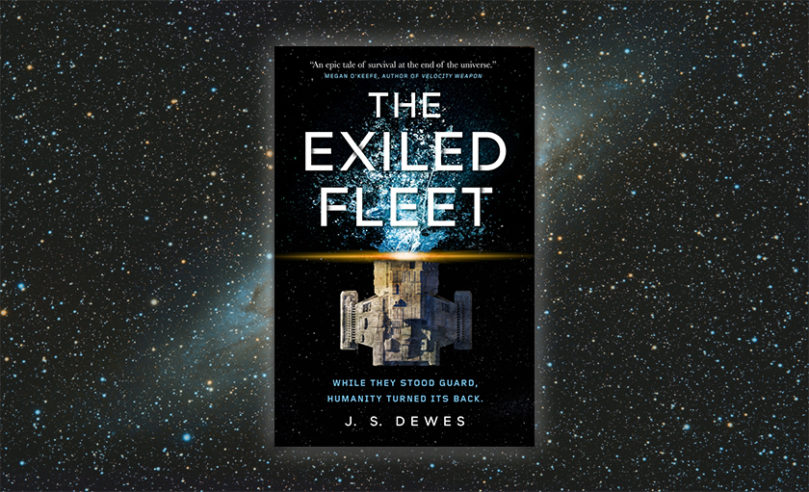

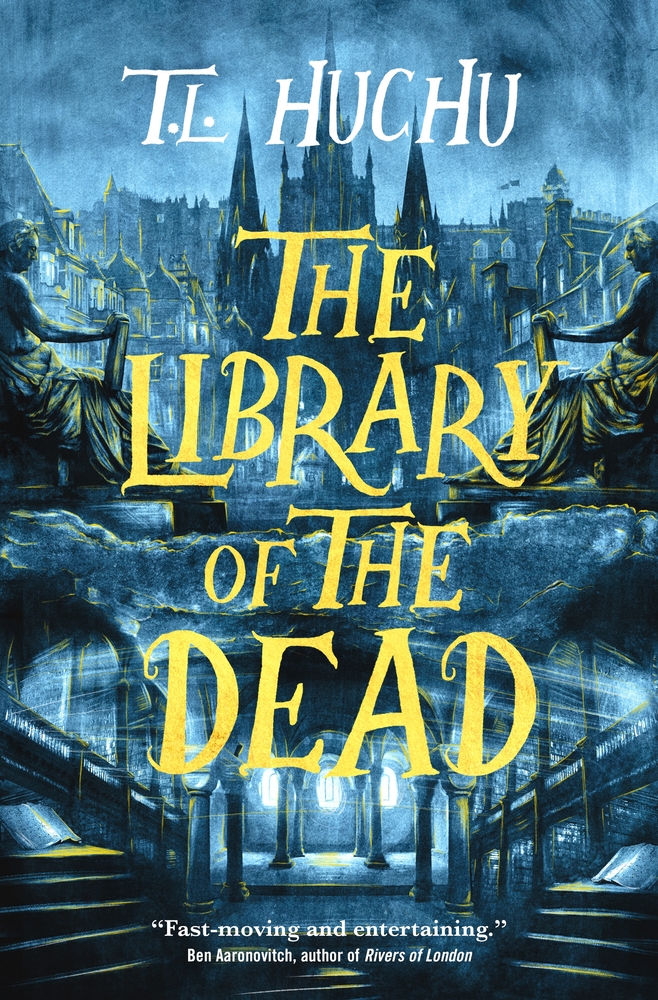 The Library of the Dead
The Library of the Dead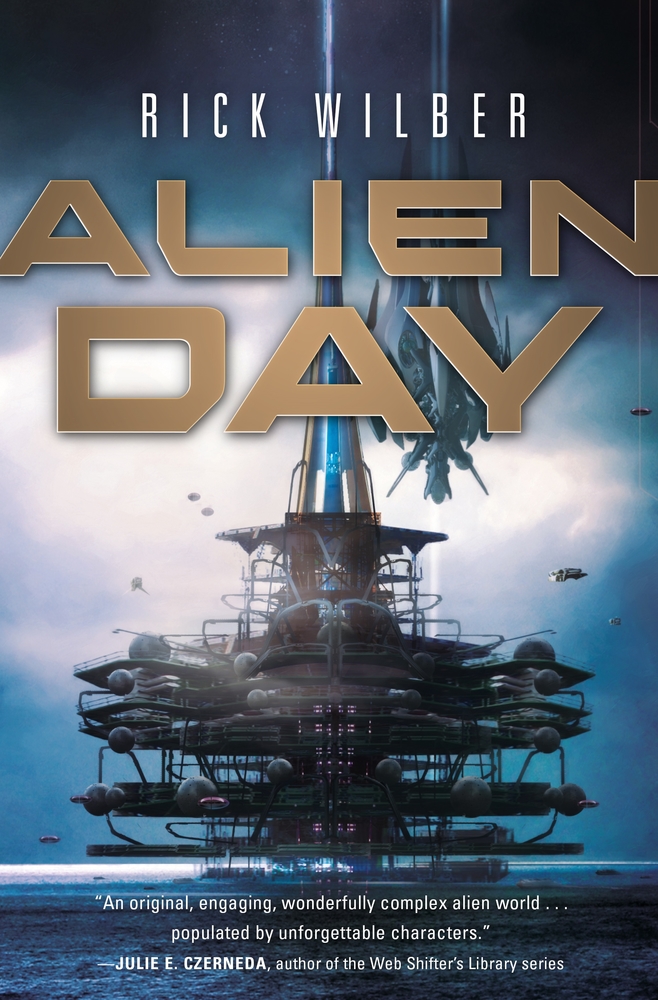 Alien Day
Alien Day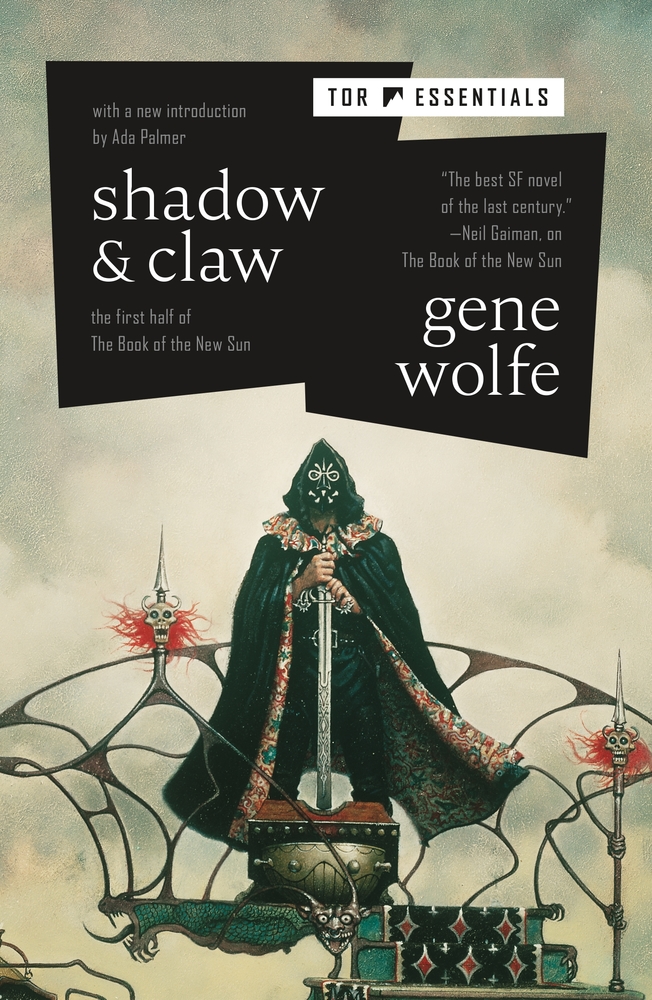 Shadow & Claw
Shadow & Claw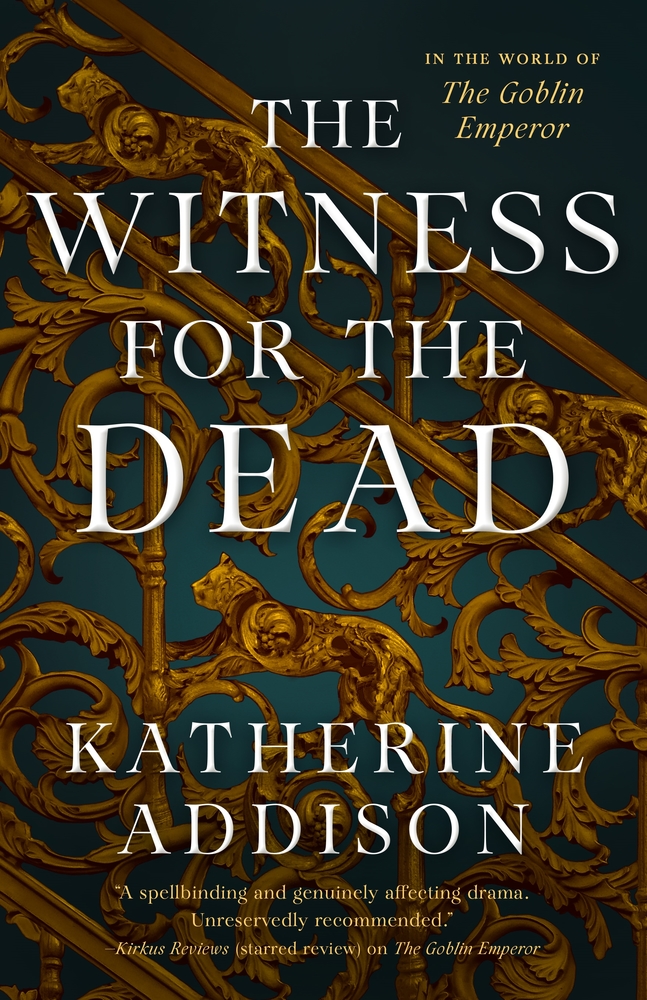 Witness for the Dead
Witness for the Dead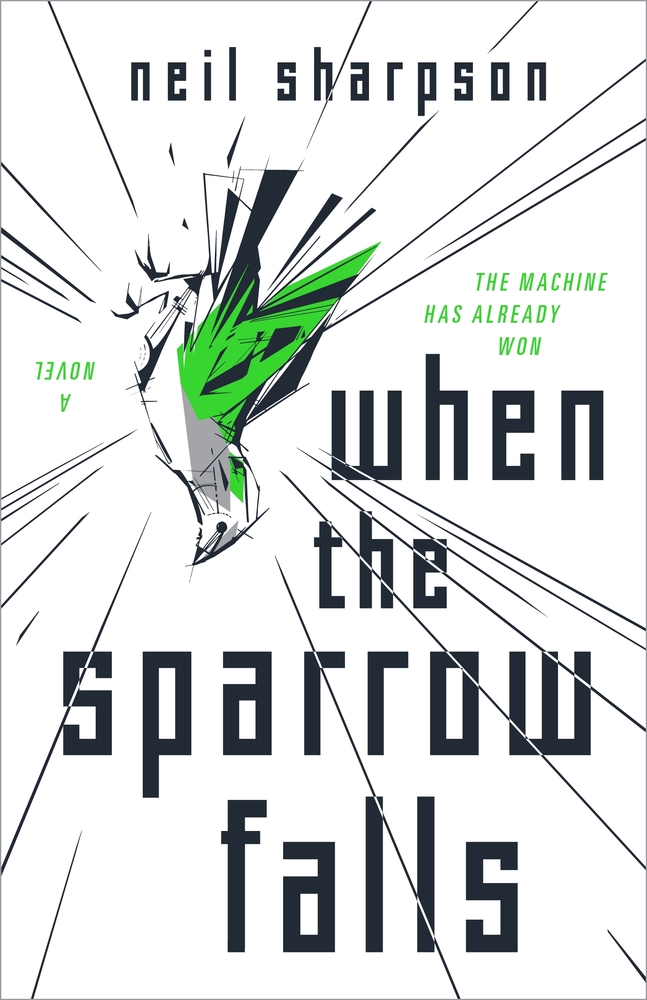 When the Sparrow Falls
When the Sparrow Falls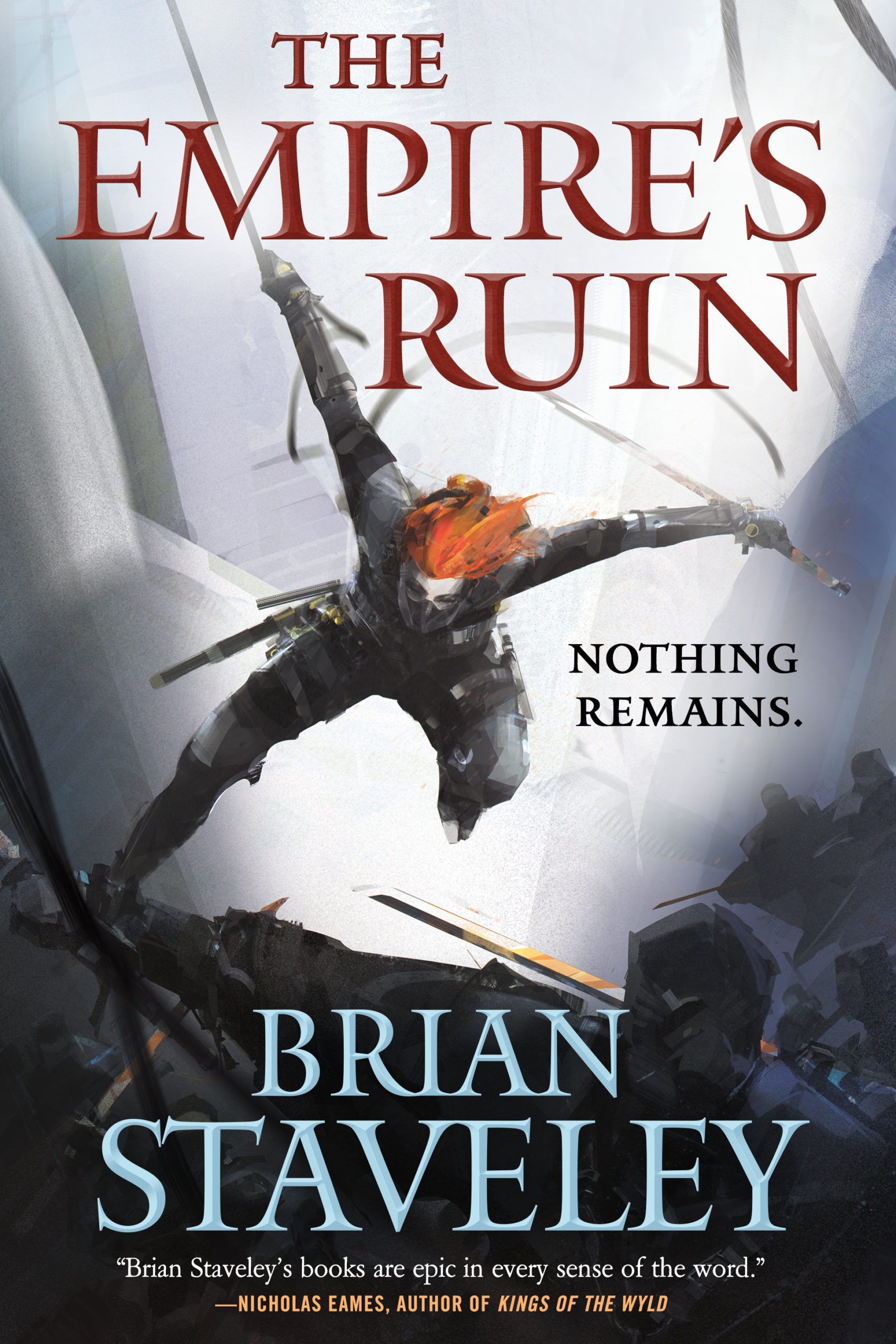 The Empire’s Ruin
The Empire’s Ruin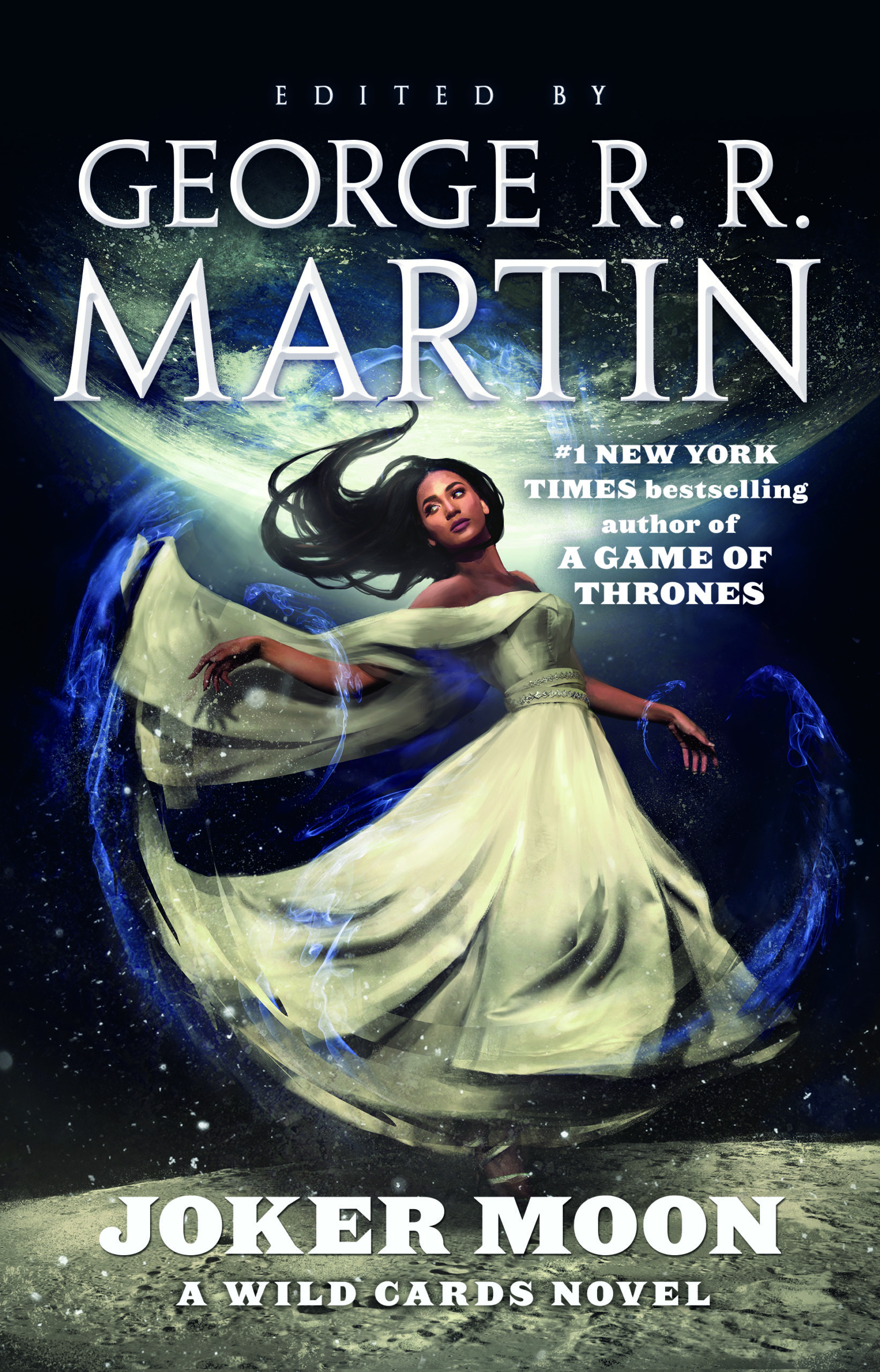 Joker Moon
Joker Moon The Freedom Race
The Freedom Race The Justice in Revenge
The Justice in Revenge She Who Became the Sun
She Who Became the Sun The Rookery
The Rookery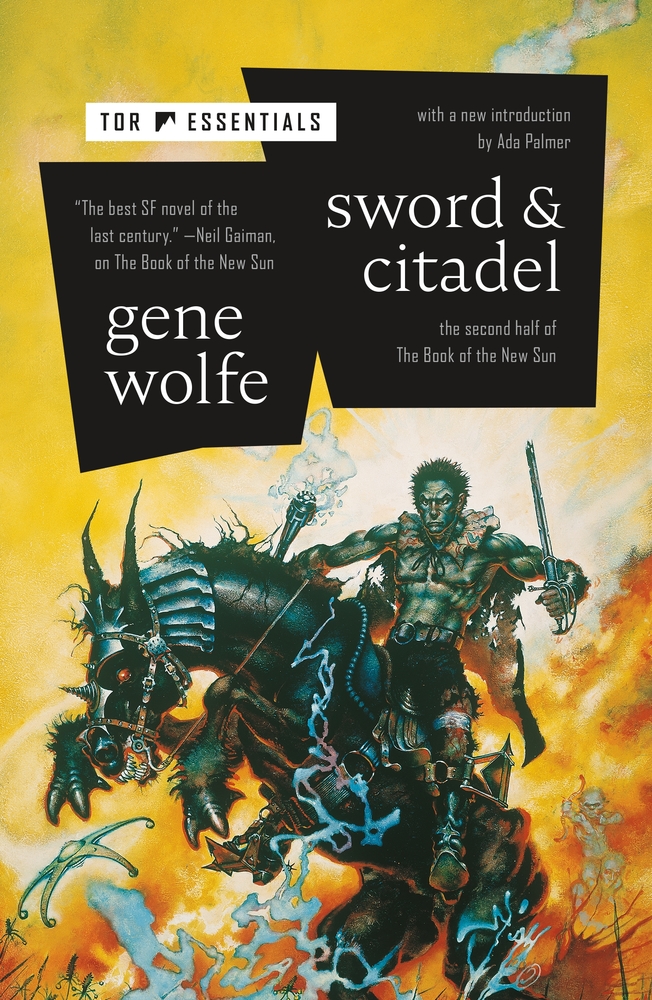
 Neptune
Neptune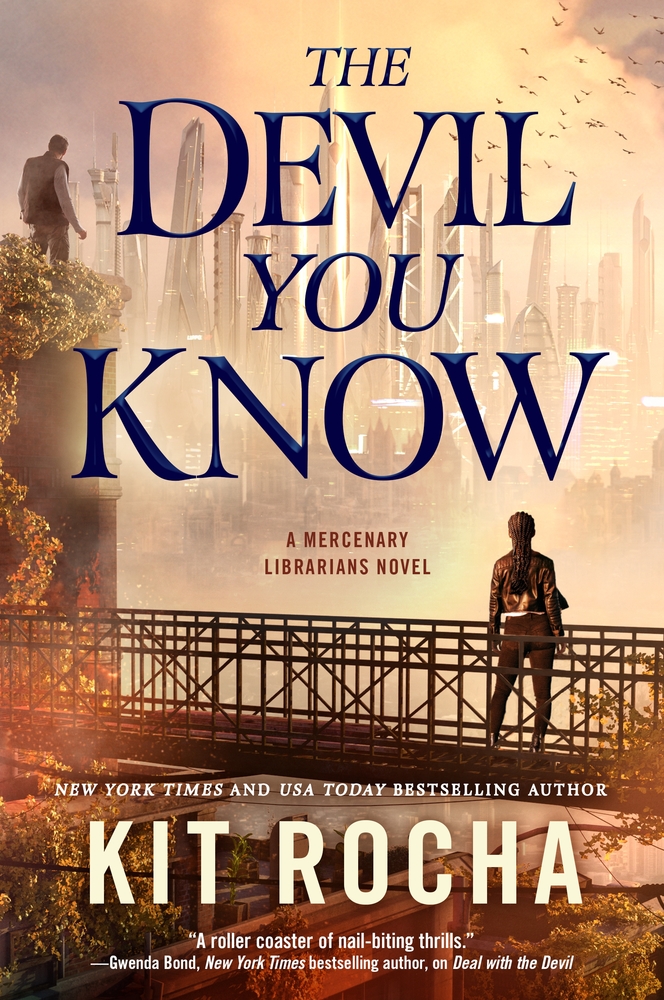 The Devil You Know
The Devil You Know Fury of a Demon
Fury of a Demon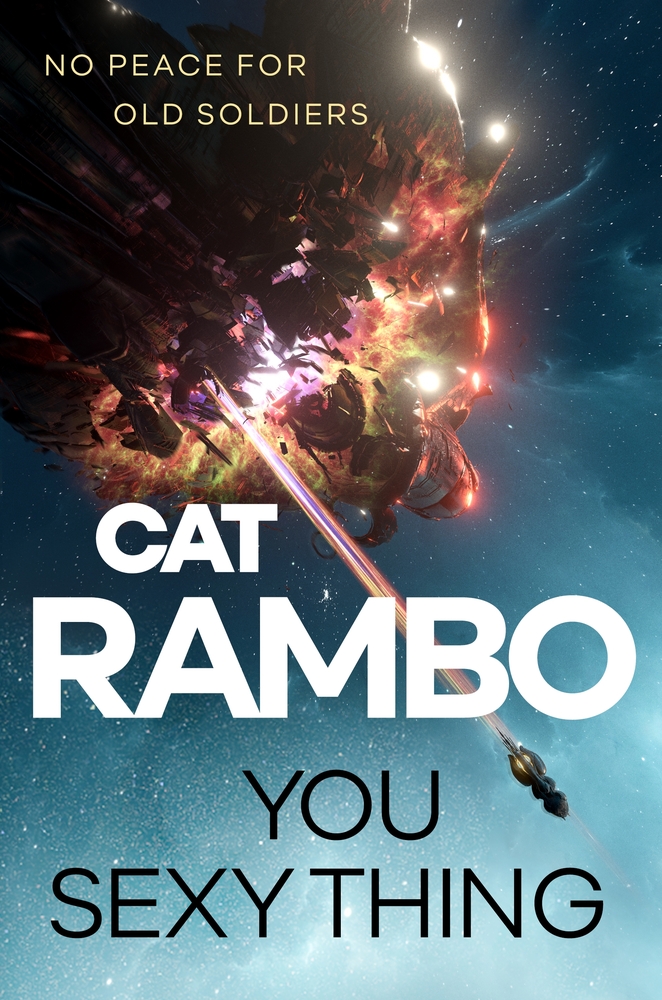 You Sexy Thing
You Sexy Thing
 Into the Light
Into the Light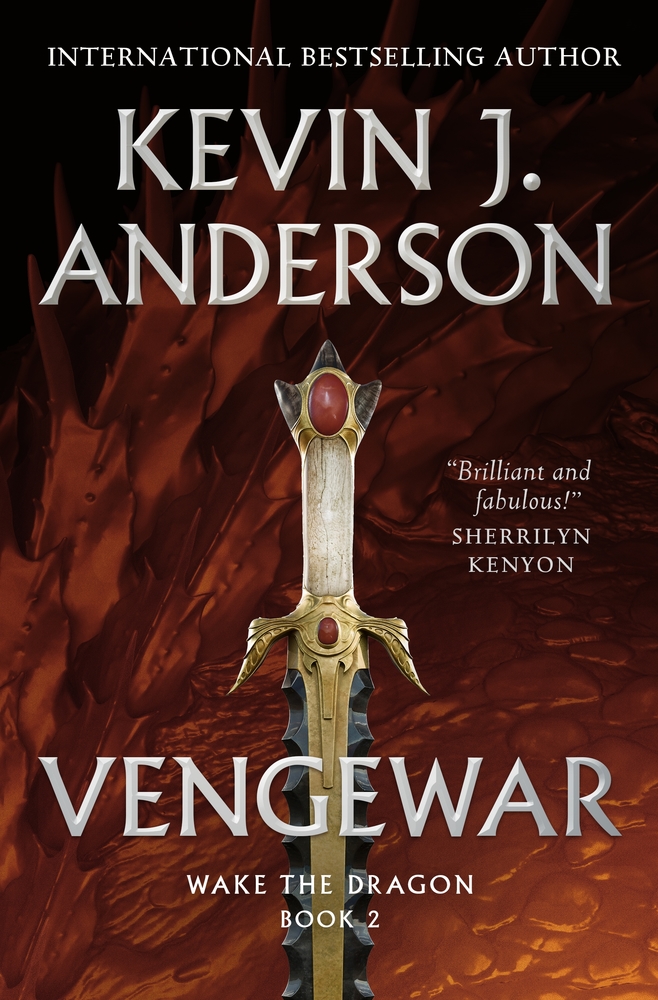 Vengewar
Vengewar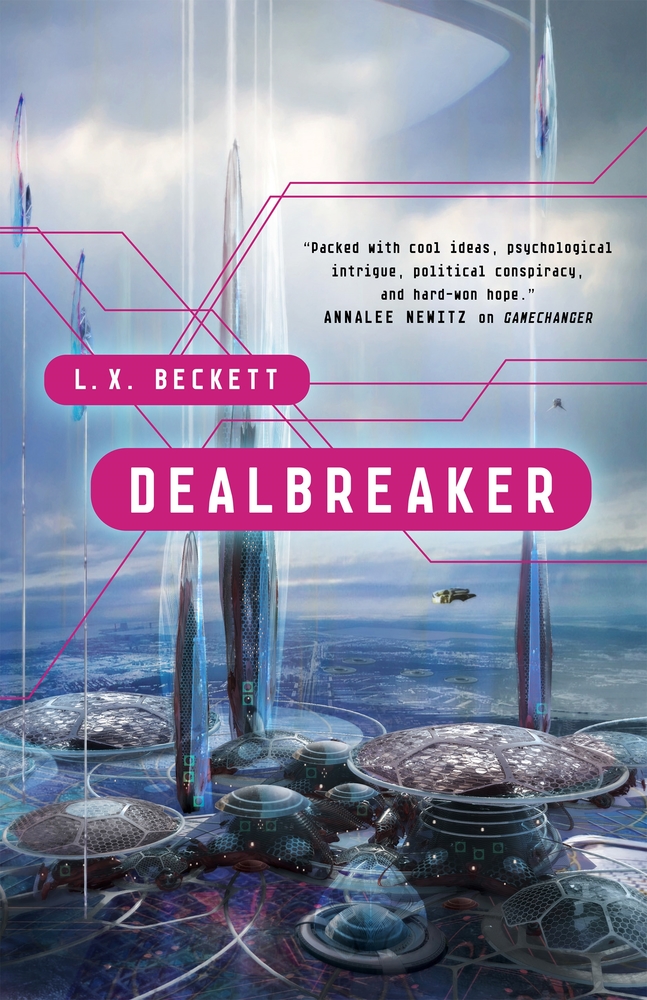 Dealbreaker
Dealbreaker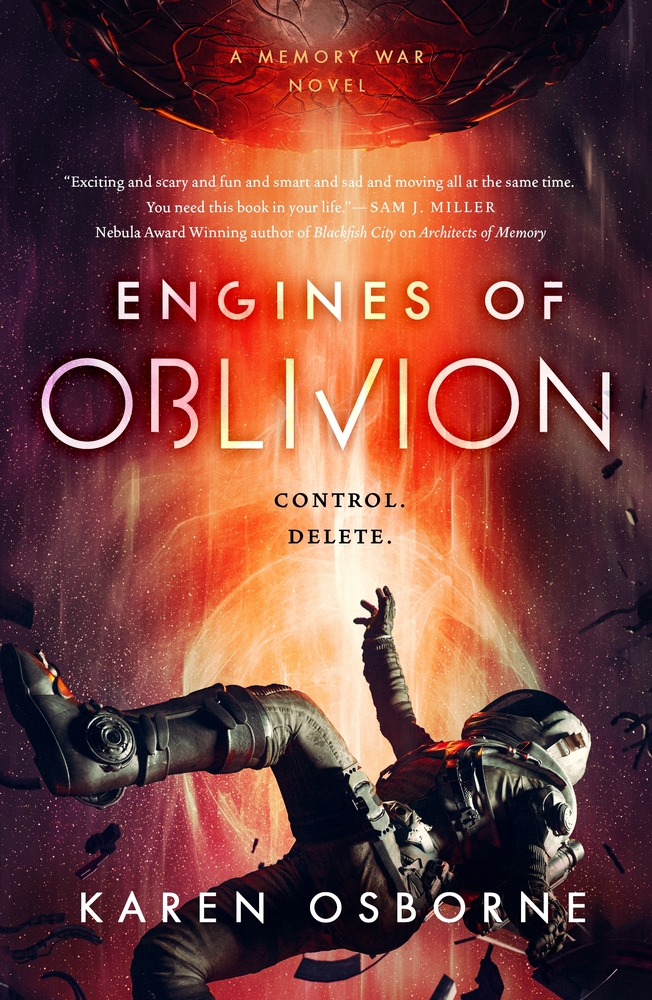
 Silence of the Soleri
Silence of the Soleri